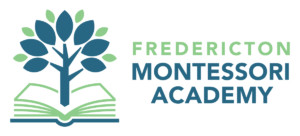OUR CURRICULUM
Mission Statement
At Fredericton Montessori Academy (FMA) our Mission is to create a happy nurturing environment within a Montessori program. We are dedicated to empowering children to reach their fullest potential, regardless of ability levels and learning styles. It is our vision to guide our children to become confident, creative and compassionate life-long learners that become driven to contribute to their local and global communities.
Our goal is to maintain an open communication between teachers, parents, students, and staff. We are committed to attend to each child’s individual needs by providing a safe, secure and caring environment to foster a love of learning.
Fredericton Montessori Academy is an inclusive environment where we celebrate diversity. All religions, races and cultures are respected. We strive to include a variety of cultural experiences within our program. Our environment maintains a neutral perspective; however, religion and spirituality are discussed.
Philosophy and Method
Dr. Maria Montessori founded the Montessori method in Italy in the early 1900s and her scientific approach to education was shaped around the individual needs of the child. Her education was built upon three primary principles – observation, freedom of choice and the prepared environment.
Maria Montessori believed “the hand is the chief teacher of the brain” and that children learn most effectively through touch. She developed beautiful sensorial materials like the golden math beads, sandpaper letters and wooden maps of the world. The teacher’s job is to show the children how to use these materials and then leave them to learn independently. These materials help the child to understand what he/she is learning by associating an abstract concept with a concrete sensorial experience. In this manner, the Montessori child is learning and not just memorizing. The Montessori Method stresses that children learn and progress at their own pace so that fast learners are not held back, and slow learners are not frustrated by their inability to keep up.
Through her observations of how children learn to walk, speak or read, Montessori concluded that a young child’s mind is like a sponge – she called it “the absorbent mind,” and called the first six years of life, “the most important period of life; the time when intelligence, man’s greatest tool, is being formed.”
As a result, a Montessori classroom will expose children to challenging concepts much earlier than the public-school system does.
